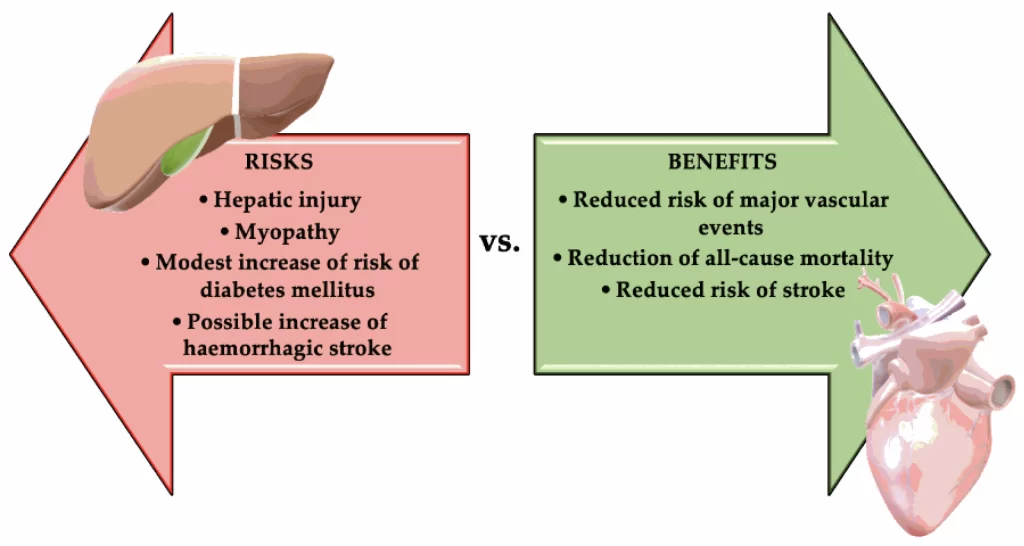Statin Use and Stroke Risk: A recent study has brought forth encouraging findings regarding the use of statins and their impact on stroke risk. Contrary to concerns, the study reveals that statins may not amplify the risk of subsequent intracerebral hemorrhages. Additionally, these medications show potential in reducing the likelihood of ischemic strokes following an intracerebral hemorrhage.

Addressing Statin Misconceptions The study’s outcomes provide valuable information that may alleviate worries surrounding the use of statins and their connection to intracerebral hemorrhages.
Positive Implications for Stroke Survivors Individuals who have experienced intracerebral hemorrhages should take note of the study’s findings, which suggest a potential benefit of incorporating statins into their treatment plans.
Impact on Ischemic Strokes While statins do not alter the risk of recurring intracerebral hemorrhages, they exhibit a potential reduction in the occurrence of ischemic strokes.
Understanding Intracerebral Hemorrhages Bleeding strokes, including intracerebral hemorrhages, pose a serious health risk. The study sheds light on the effects of statins in this context.
Study Methodology and Key Findings The study, conducted in Denmark, tracks individuals who experienced bleeding strokes and examines the relationship between statin use and stroke risk.
Statin’s Broader Benefits Experts highlight that statins offer more than cholesterol management, showcasing anti-inflammatory effects that could positively influence stroke prevention.
Further Research and Confirmation While the study brings optimism, additional research is necessary to validate the findings and delve deeper into their long-term implications.
Understanding Stroke Risk Factors The study underscores the importance of managing risk factors like hypertension, which plays a significant role in both ischemic and hemorrhagic strokes.
FAQs on the content
Q: What are statins and their role?
A: Statins are medications commonly used to manage cholesterol levels and potentially reduce stroke risk.
Q: Can statin use lead to more intracerebral hemorrhages?
A: No, the study suggests that statin use does not increase the risk of subsequent intracerebral hemorrhages.
Q: How do statins affect ischemic stroke risk?
A: The study indicates that statins may help lower the risk of ischemic strokes following an intracerebral hemorrhage.
Q: Why are intracerebral hemorrhages concerning?
A: Intracerebral hemorrhages are severe forms of stroke that impact a notable portion of individuals, emphasizing the need for effective prevention strategies.
Q: What are some risk factors for bleeding strokes?
A: Risk factors include hypertension, certain lifestyle habits, and substance abuse that activate the sympathetic nervous system.
Q: Are statins solely for cholesterol management?
A: No, statins offer broader benefits, including anti-inflammatory effects that contribute to stroke prevention.




